Eleven Israeli-founded companies and startups were featured in the fifth annual AI 100 finalists report put together by New York-based research firm CB Insights, recognizing promising private AI companies worldwide that are driving innovation across industries and offering a broad range of cross-industry applications.
The report was published on Friday.
CB Insights said the listed companies were selected from a pool of over 6,000 startups and based on several factors including R&D activity, business relations, investor profile, market potential, competitive landscape, team strength, and tech novelty.
This year’s winners, according to CB Insights, are bringing products to market that “highlight the breadth and depth of AI’s impact on industries” — from drug R&D and revenue cycle management for hospitals to autonomous beekeeping and municipal waste sortation.
“This is the fifth year CB Insights has recognized the most promising private artificial intelligence companies with the AI 100, and this is one of the most global groups we’ve ever seen. This year’s cohort spans 18 industries, and is working on everything from climate risk to accelerating drug R&D,” said CB Insights CEO Anand Sanwal in a statement.
“Last year’s AI 100 companies had a remarkable run after being named to the list, with more than 50 percent going on to raise additional financing (totaling $5.2B), including 16 $100 million+ mega-rounds. Many also went on to exit via M&A, SPAC or IPO. As industry after industry adopts AI, we expect this year’s class will see similar levels of interest from investors, acquirers and customers,” added Sanwal.
Indeed, eight Israeli companies were featured in last year’s round-up.
This year, the 11 Israeli companies on CB Insights’ AI 100 list are:
– Aurora Labs, an Israeli-founded startup that developed automotive software fixes and predictive maintenance for connected vehicles.
Founded in 2016, the company says its machine-learning algorithms uniquely address all three stages of an automotive maintenance system to detect, repair, and seamlessly implement over-the-air (OTA) updates to faults in the software. The company dubbed it “self-healing software.”
Aurora Labs raised $23 million in Series B funding in September 2020. The round was jointly led by LG Technology Ventures, the investment arm of the LG Group, and Marius Nacht, co-founder of Check Point Software Technologies, with Porsche SE, Toyota Tsusho (a member of Toyota Group), UL Ventures, and existing investors also participating.
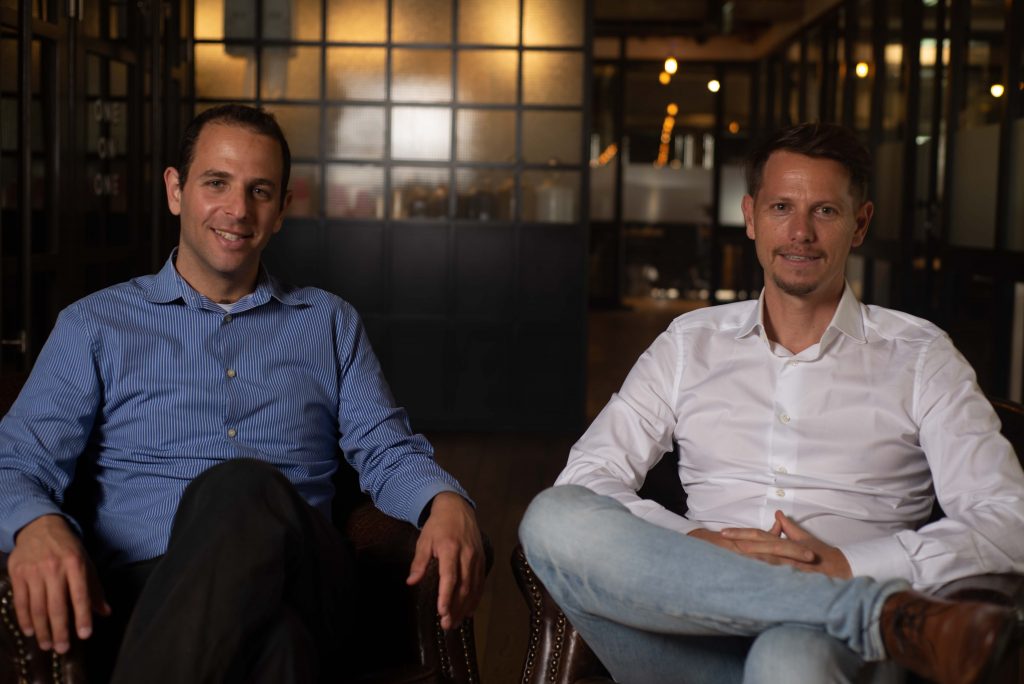
“As the world becomes more connected and edge computing more complex, we need advanced, predictive security solutions to keep us all safe,” said Rear Admiral (Ret.) Ophir Shoham who co-led the round on behalf of Nacht at the time. “Aurora Labs’ Self-Healing Software with its unique and proven OTA capabilities, backed with very solid IP, has great potential for the advanced automotive industry and for IoT applications.”
– Beewise, an Israeli startup that developed the first automated and autonomous beehive, the Beehome.
Beehome is a solar-powered, retrofitted shipping container that can house up to 40 bee colonies in an automatically controlled climate for optimal humidity conditions that can be monitored via app. The Beehome also has pest control functions that monitor for parasitic mites that can have detrimental effects on colonies. AI technology adjusts conditions in the Beehome when it identifies that a colony is preparing to swarm, and Beehomes send alerts to beekeepers once a container of honey reaches its 100-gallon capacity.
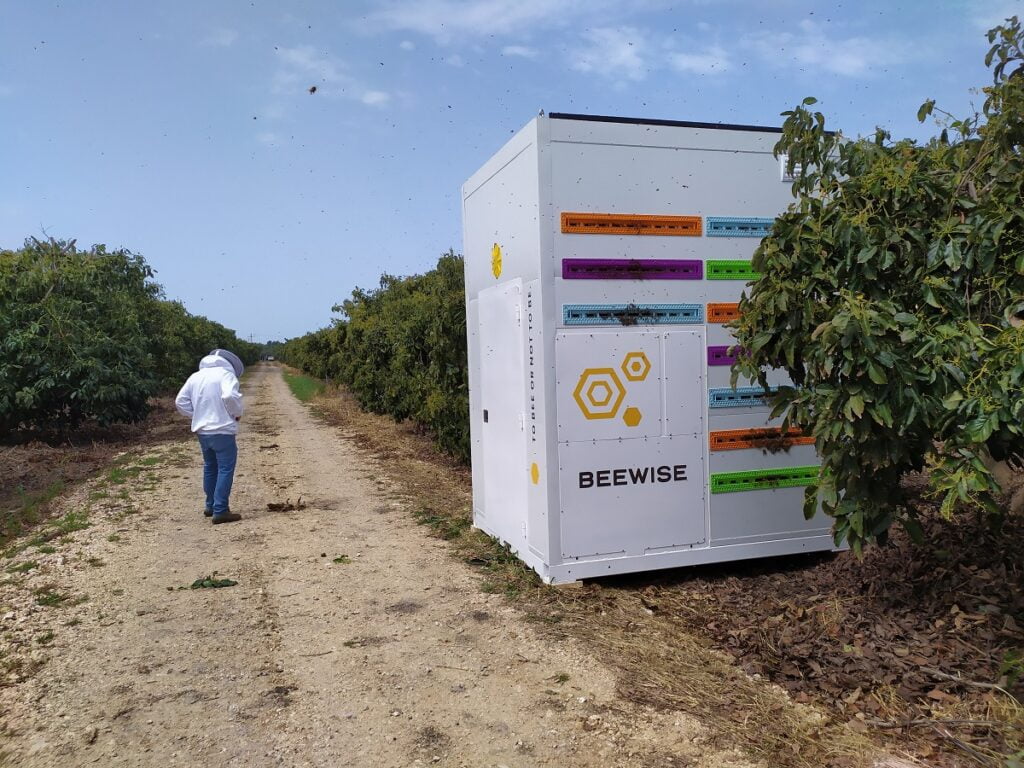
The company says the hives help yield 200 percent more honey, improve bee colony survival rates, and decrease manual labor requirements by 90 percent.
Beewise was also recently named among US business magazine Fast Company’s “most innovative companies” in 2021, alongside six other Israeli companies, and to TIME Magazine’s annual list of 100 Best Inventions of 2020, with five other Israeli companies.
– Deci AI, a Tel Aviv-based startup founded in 2019 that provides acceleration of deep learning models, substantially reducing latency and cost-to-serve.
Deci says its deep learning platform enables data scientists to transform their artificial intelligence models into production-grade solutions on any hardware, crafting the next generation of AI for enterprises. Its proprietary AutoNAC (Automated Neural Architecture Construction) technology autonomously redesigns an enterprise’s deep learning models to squeeze the maximum utilization out of its hardware, according to the company.
Deci was part of the Intel Ignite program in 2019, and announced a collaboration with Intel this month to optimize deep learning inference on Intel Architecture (IA) CPUs.
The company raised $9.1 million in a seed round in October 2020 led by Emerge and Square Peg.
– Percepto, a developer of drone-based autonomous and aerial inspection solutions for asset monitoring and compliance for industrial sites.
Founded in 2014, Percepto says it is evolving its advanced drone-in-a-box solution to the next level, using an Autonomous Inspecting & Monitoring platform for its hardware and software. The company operates a fleet of third-party robots alongside its autonomous drone, Sparrow.
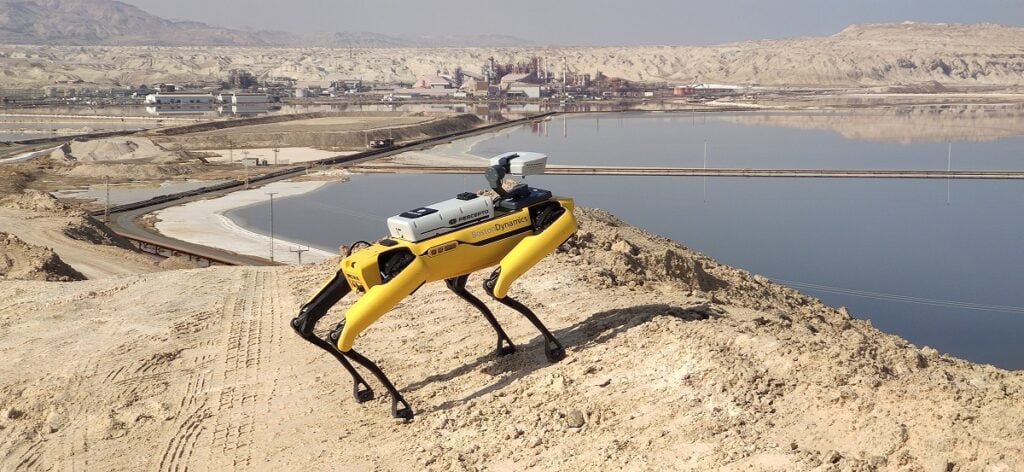
Percepto’s AIM platform provides visual data management and analysis to report trends and anomalies and to alert of risks, while driving efficiency and reducing operational costs without human intervention, according to the company.
Percepto recently raised $45 million with Koch Disruptive Technologies (KDT) and other investors, and partnered with US robotics company Boston Dynamics to integrate its solution into the US firm’s Spot robot, built to navigate terrain with unprecedented mobility.
– Prospera, an award-winning company that develops computer vision technologies to monitor and predict plant health and development.
Founded in 2014, Prospera says it captures multiple layers of climate and visual data from the crop field and provides actionable, easy-to-read insights to growers via mobile and web dashboards.
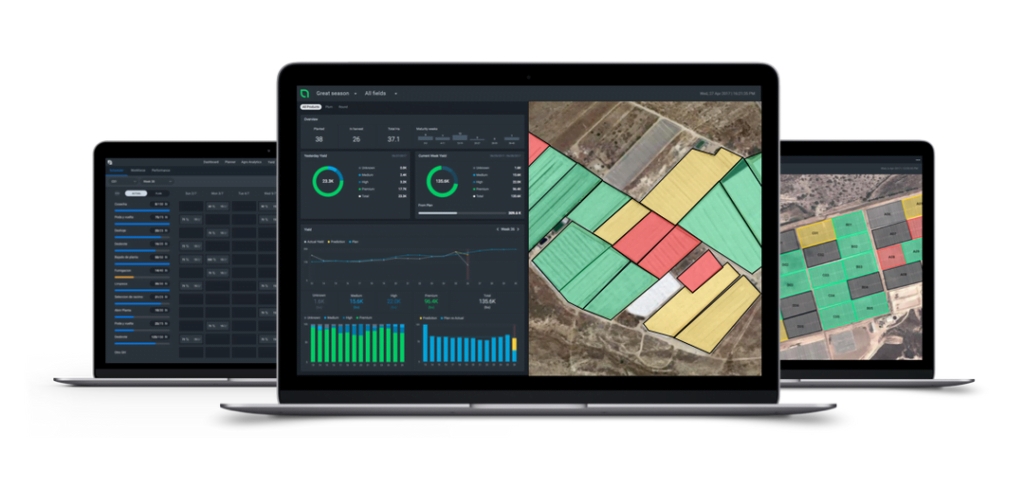
In 2020, Prospera was listed among 100 firms to the World Economic Forum’s 2020 Technology Pioneers list, honoring initiatives that address global issues with cutting-edge technology.
The company was also named among the top 50 firms worldwide in the food tech and agtech (agriculture tech) sectors in 2020 in a report put together by SVG Ventures-THRIVE and published by Forbes.
– Run:AI, an Israeli AI orchestration and virtualization software company.
Launched in 2019, Run:AI says it is bridging the gap between data science and computing infrastructure by creating a high-performance compute virtualization layer for deep learning, speeding the training of neural network models, and enabling the development of large artificial intelligence models.
Sign up for our free weekly newsletter
Subscribe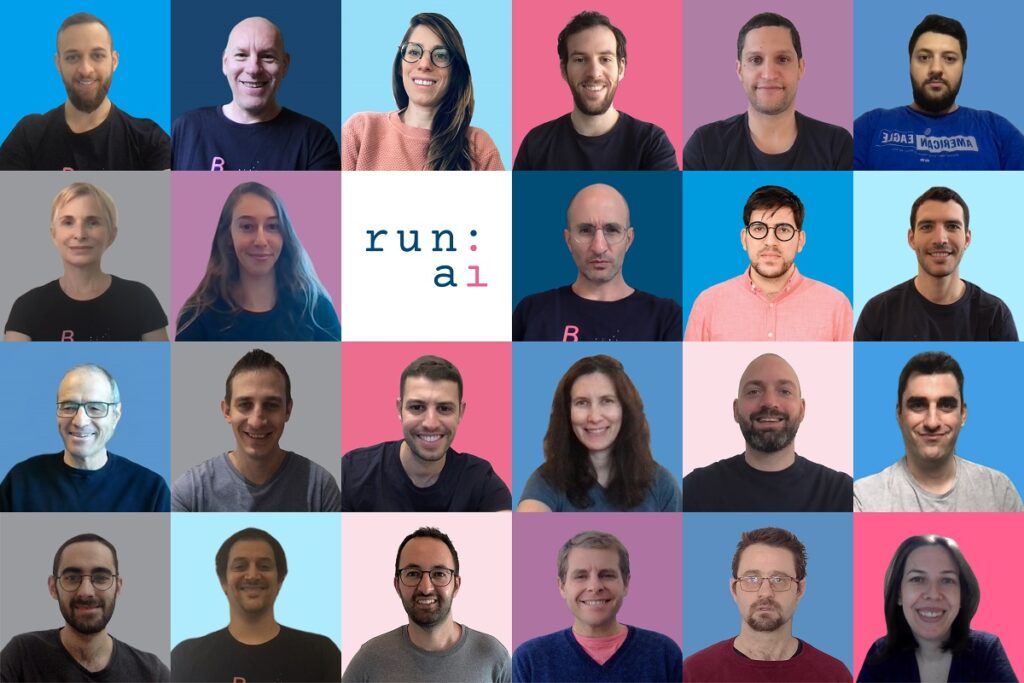
Earlier this year, Run:AI raised $30 million in a Series B round led by Insight Partners, with participation from existing investors TLV Partners and S-Capital.
“Tomorrow’s industry leaders will be those companies that master both hardware and software within the AI data centers of the future,” said Omri Geller, co-founder and CEO of Run:AI, at the time. “The more experiments a team runs, and the faster it runs them, the sooner a company can bring AI solutions to market. Every time GPU resources are sitting idle, that’s an experiment that another team member could have been running, or a prediction that could have be made, slowing down critical AI initiatives.”
– SentinelOne, the Israeli cybersecurity firm that developed an AI-based platform to secure endpoints including laptops, PCS, servers, cloud servers, and IoT devices. Its system analyzes data in real-time to identify anomalies and provide a response to attacks.
The company is a repeat entry, having also made the CB Insights AI 100 list in 2020, alongside seven other Israeli firms.
SentinelOne was founded in 2013 by CEO Tomer Weingarten and Almog Cohen. The company raised $200 million last year in a funding round led by NY-based equity firm Insight Partners at a company valuation of more than $1 billion.
SentinelOne has offices in Mountain View, California and a development center in Israel.
– Snyk, the Israeli-founded, UK-based cybersecurity company that provides security solutions for vulnerabilities in open source libraries. The company is also a repeat entry, having made the CB Insights AI 100 list last year.
Founded in 2015 by Guy Podjarny, Assaf Hefetz, and Danny Grander, Snyk helps companies and developers find vulnerabilities in their open-source code and stay secure. Major clients include Google, Microsoft, Salesforce, and Adobe.
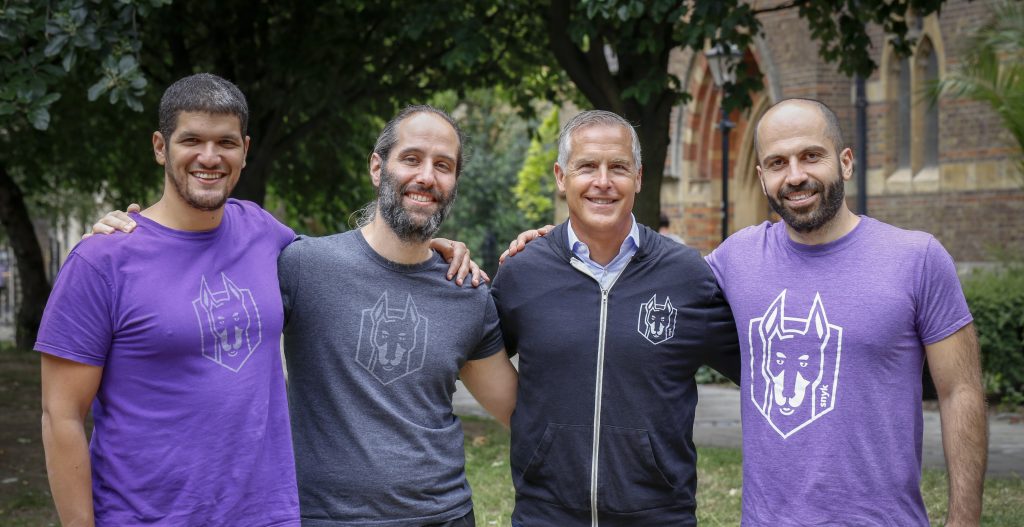
Snyk secured Series E financing last month totaling $300 million at a valuation of $4.7 billion, quadrupling since the beginning of 2020. The round was co-led by Accel and Tiger Global, with participation from existing investors Addition, Boldstart Ventures, Canaan Partners, Coatue, GV (formally Google Ventures), Salesforce Ventures, Stripes and funds managed by BlackRock.
Snyk says that today, it enables 2.2 million developers to “build securely, with a vision to empower every modern developer in the world to develop fast and stay secure”
In October 2020, Snyk was named among 100 startups to The Cloud 100, an annual ranking of the world’s top private cloud companies by American business magazine Forbes.
– Syte, an Israeli visual search and product discovery startup that is working with some of the biggest retailers worldwide.
Syte was founded in 2015 by Lihi Pinto Fryman, who serves as CRO, her husband Ofer Fryman, CEO, his brother Idan Pinto, COO, and nuclear physicist and machine learning expert Dr. Helge Voss, CTO.

The main idea behind the startup was prompted by an incident five years ago in which Pinto Fryman, then an investment banker in London, came across a red dress she liked online but could find no details on the garment to buy it. She and her co-founders then got to work on a platform that powers visual searches so shoppers could find items using pictures or screenshots. And today, this platform works to help customers on e-commerce sites discover fashion, jewelry, and home decor.
Syte now works with massive retailers such as US department store chain Kohl’s, online luxury fashion retail platform Farfetch, and FashionNova to help customers discover products and let them search visually for items.
The platform also allows for what the company calls the world’s first augmented site search, an enhanced text search solution that combines visual AI and NLP (natural language processing) layers to decipher human context and intent.
Syte recently raised a $30 million Series C funding round led by Viola Ventures and LG Technology Ventures, plus an additional $10 million in debt financing.
SEE ALSO: Israel Startup Syte Reinvents The Shopping Experience With Visual AI
– Theator, an Israeli-founded, US-based company that developed a surgical intelligence platform.
Theator was co-founded in 2018 by Dr. Tamir Wolf and Dotan Asselmann and leverages advanced artificial intelligence and computer vision tech to provide video analytics that enable surgeons to review and assess a recently completed hours-long procedure in just minutes.
The startup, which has an R&D center in Israel, had a number of partnership announcements, a $15.5 million Series A funding round, and the introduction of a new computer science breakthrough (aka Video Transformer Network.)
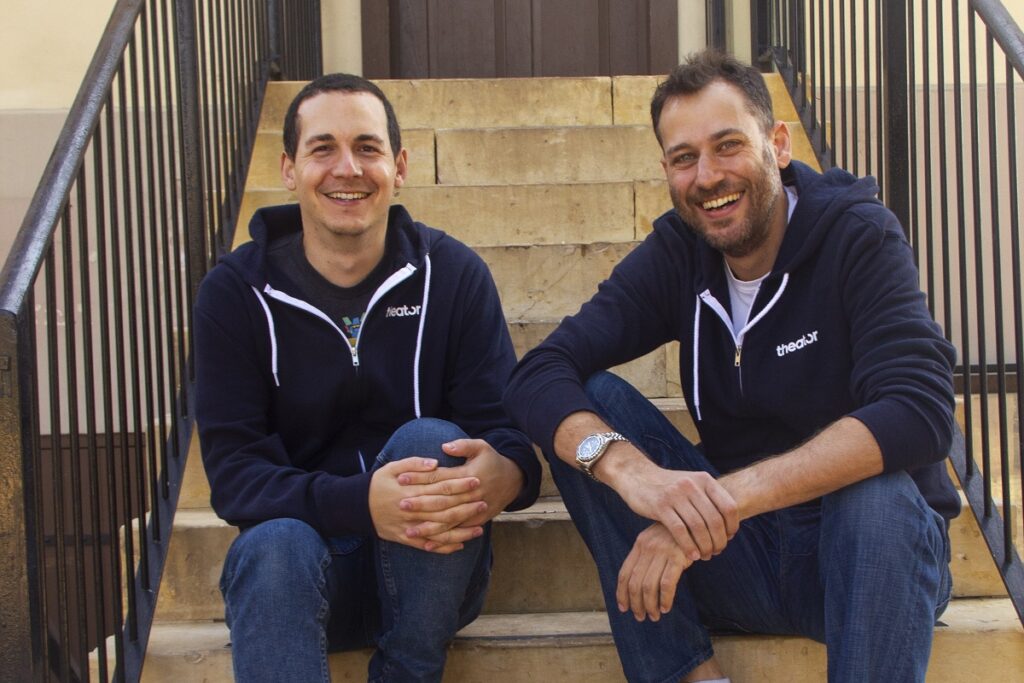
In September 2020, Tel Aviv Sourasky Center (also knows as Ichilov Hospital), the largest acute care facility in Israel, announced that it will implement the platform in order to provide insights on best surgical practices and reduce medical errors, enabling surgeons to improve their performance and training.
Theator was recently named to US business magazine Fast Company’s “most innovative companies” in 2021 (alongside six other Israeli companies).
– Wint, a developer of water management and control solutions.
Founded in 2017, Wint makes use of artificial intelligence, signal processing, auto-shutoff valves, and IoT technologies to monitor water flows and detect anomalies, leaks, and waste. The company’s platform delivers real-time insights and alerts.
“Leaks and water damage are significant problems in construction sites, real estate and industry and contribute every year to major costs for repair and remediation, insurance and lost productivity,” said Alon Geva, CEO of Wint, in a company release.
“Wasted water also contributes to the global shortage of this critical resource. With Wint’s transformative technology, waste can be prevented and leaks can be stopped at the source to help prevent widespread damage before it occurs,” he added.
NOTE: This article originally listed nine companies and was edited on April 14, 2021 to reflect two more Israeli companies that were initially missed.
Related posts

Editors’ & Readers’ Choice: 10 Favorite NoCamels Articles

Forward Facing: What Does The Future Hold For Israeli High-Tech?

Impact Innovation: Israeli Startups That Could Shape Our Future




Facebook comments